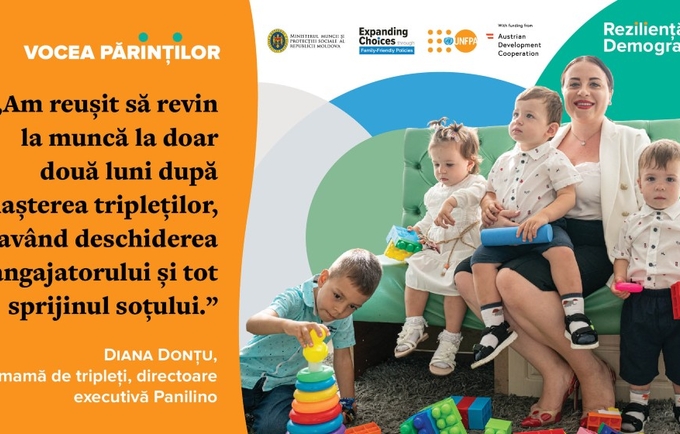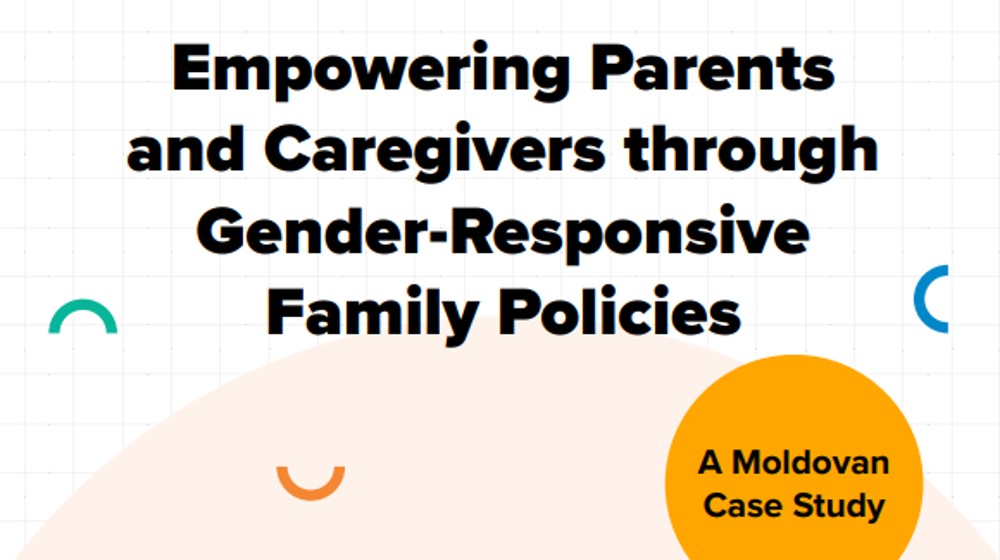Motherhood and career can be reconciled when you have your family’s support and a team that takes into account the needs of each employee, declared from her experience Diana Donțu, a mother of triplets and Executive Director of ‘Panilino’ company. The young mother returned to work exactly two months after the birth of her children - Alexandru, Mateo and Ecaterina.
For two years and nine months, Diana Donțu has been living the most interesting experience in her life with her three wonders, who motivate her to overcome each challenge and assert herself as a professional. ‘I knew from the beginning that I will continue my career once I become a mother. My job requires continuous development and I need to keep up with all the changes in the area. In this mission, my husband is my biggest support. We support each other’, says Diana Donțu.
As she was born of twins, the idea to have a twin pregnancy was natural to her, but the news that she will be a mother of triplets amazed the whole family. ‘My pregnancy was easy, and this allowed me to work until the last days of pregnancy. I was sure that after the birth of my children things would be easy, but in reality it got harder. Children needed a lot of attention, and I didn’t have the freedom that I used to have’, Diana remembers.
‘In the beginning I felt that someone stole my life, but thanks to my husband’s involvement in taking care of the babies and thanks to his encouragement, I regained my balance. I returned to work, started to read motivational books, and in parallel started to make handmade bags’, declared the mother of triplets.
According to ‘Generations and Gender’ - the most complex demographic survey carried out in the Republic of Moldova, nine of ten women with children under the age of three stay at home and only four of ten women with children under the age of six are employed.
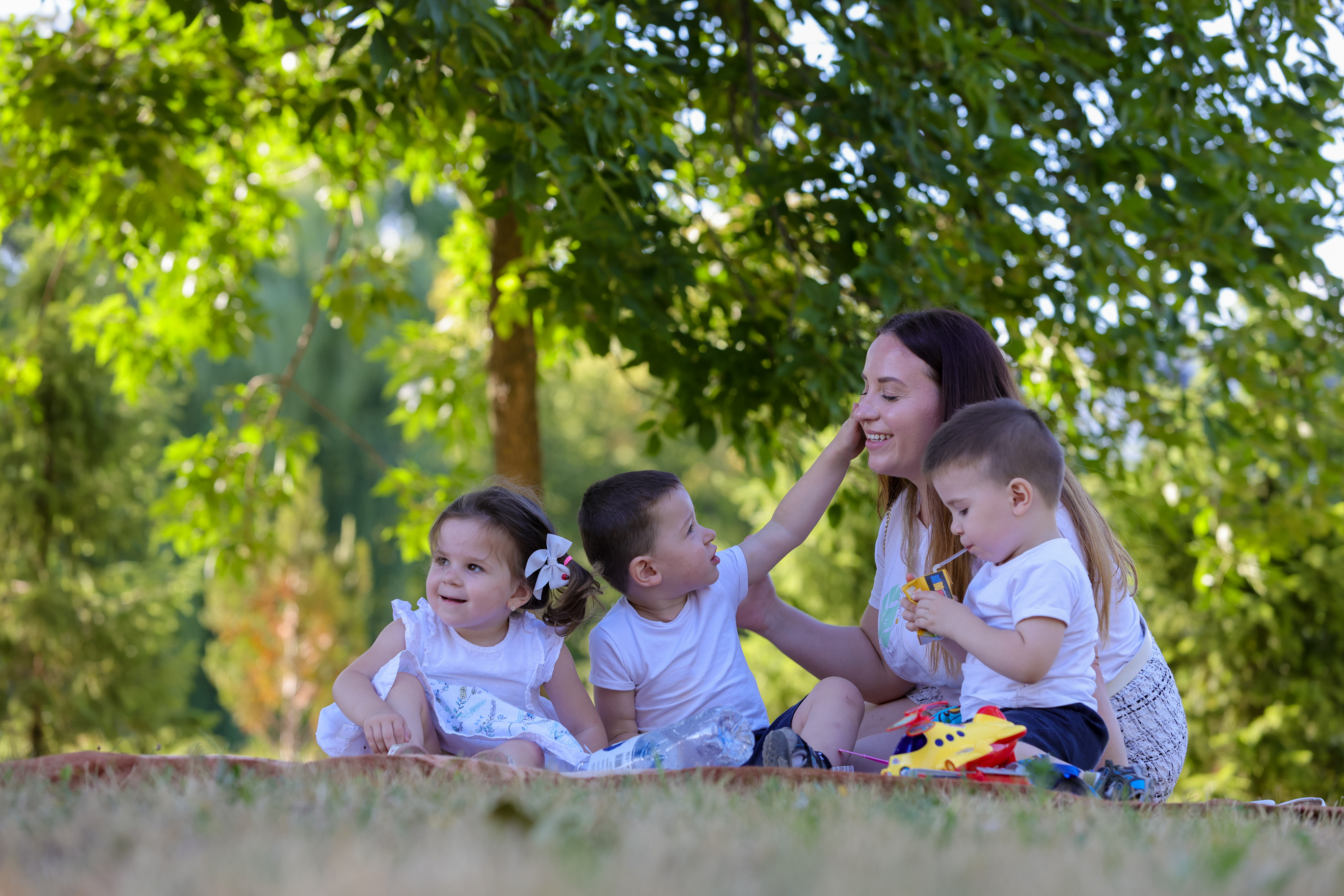
Mother with a full-time job - a mission that became possible
During the first two months from the children’s birth, she had worked remotely, enjoying the unique moments of motherhood. Later, she started working from the office three days a week, while the children remained in the care of their father and grandparents. After half a year, the family also contracted the services of two nannies.
The GGS study finds that difficulty in fulfilling the family tasks due to long hours spent at work is characteristic for one in two men with small children (50.3%) and approximately for 2 of 5 women with small children (39.2%).
Speaking from her own experience, after knowing what it's like to be a mother with a full-time job, Diana strongly encourages new and future mothers to continue their work or to develop a new passion during motherhood.
‘If possible, it is good to work remotely, but if the job requires physical presence, then it is recommended for mothers to discuss a reduced work program with their employer. In this way, women maintain their professional skills, are financially independent and have an impulse to develop further’, says the Executive Director of the ‘Panilino’ company.
Generations and Gender Survey shows that 75% of the population consider that a working mother can ensure a safe and warm relationship for her child. On the other hand, 74% of the population partially or totally believes that a child under the age of 3 can suffer if his/her mother goes back to work, with a higher proportion in rural areas and among women.
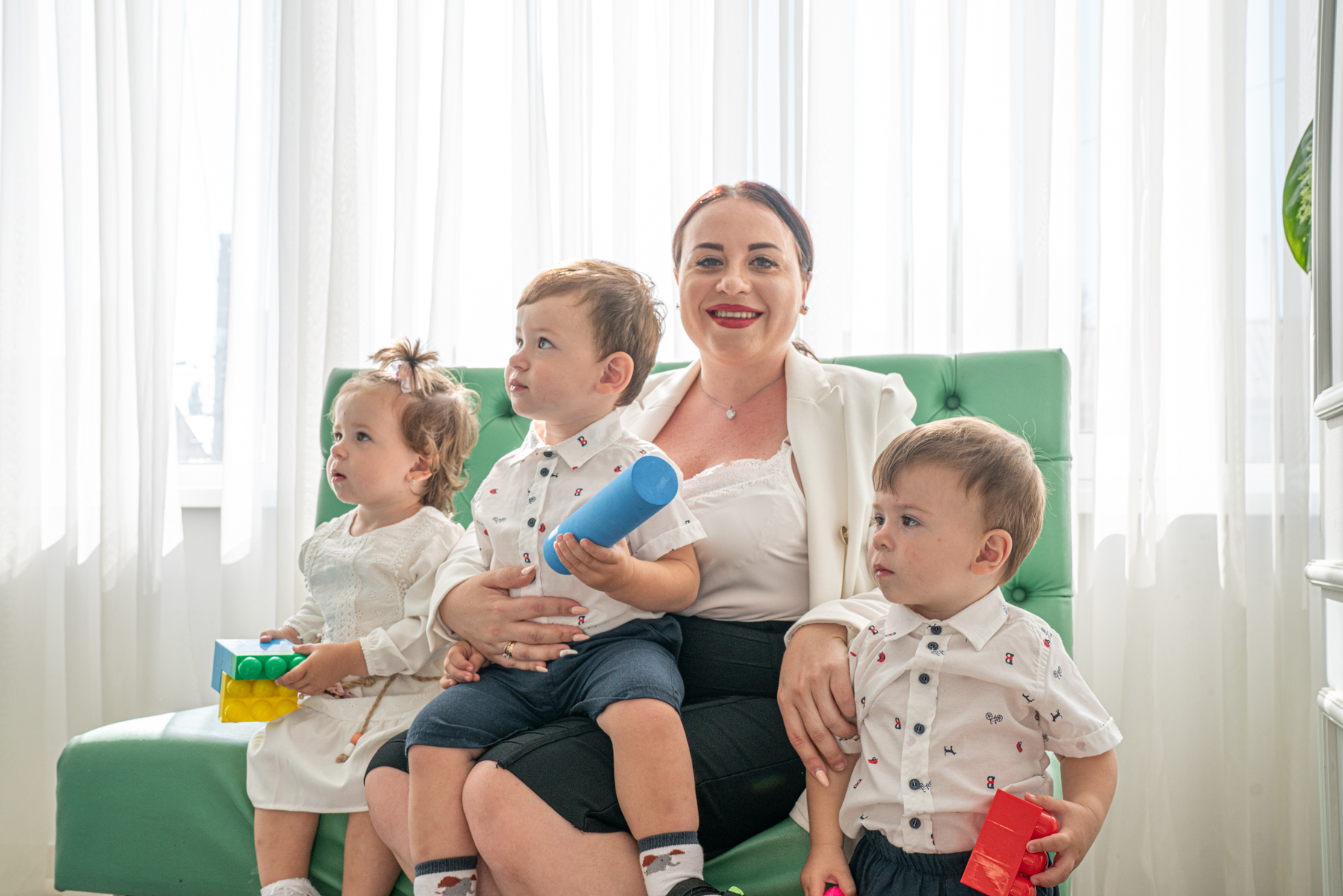
There are more opportunities that increase women’s potential to succeed in career
Diana used her managerial skills and transformed the baby care routine into a well established program, with meals, sleeping and play at after fixed hours in order to succeed to give them the necessary attention and fulfilling her job responsibilities. The young mother breastfed her triplets for eight months.
‘The fixed program is rule number one in a family with triplets. My day starts at 05:00 a.m. and ends at midnight. The child development activities such as play, outdoor walks - all happen at predetermined times’, says the mother.
The involvement of her husband is significant for all of Diana’s achievements. The couple shares equally the household chores, cooking, shopping, transporting children from kindergarten. ‘There are days when one of the triplets is noisier at noon, then the husband takes him from the kindergarten and waits for us at home until the evening, when I arrive with the other children’, she reports.
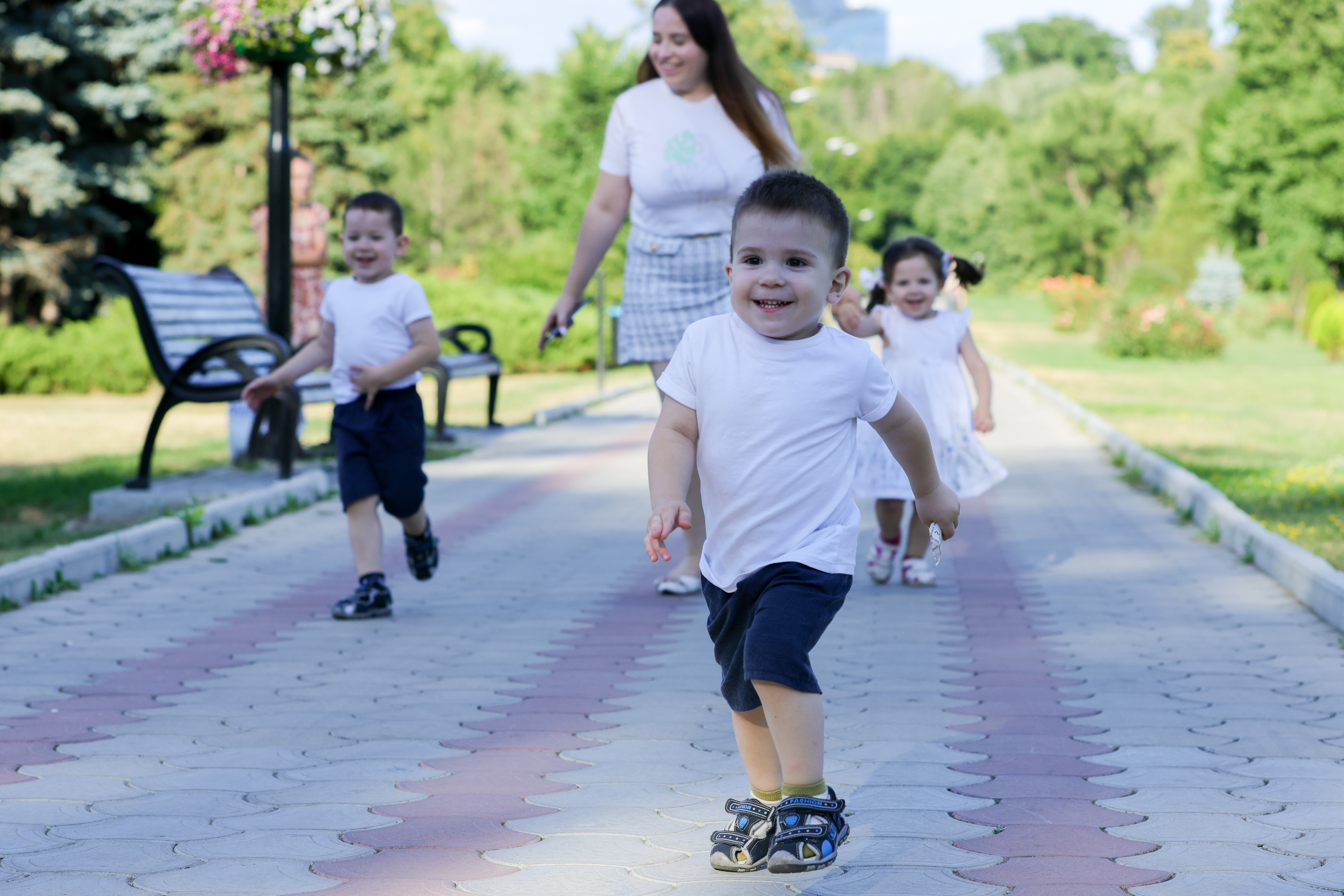
A family-friendly work environment motivates mothers who want to return earlier from childcare leave
According to the Generations and Gender Survey, the unpaid care work is an exclusive responsibility for most women in the Republic of Moldova, with this situation being exacerbated by the pandemic. The Government, private sector and external partners have joined their forces to expand opportunities for women and men, so as to help couples have the number of children that they want and to achieve their professional and personal aspirations.
In July of this year, the Parliament of the Republic of Moldova with the technical assistance of UNFPA Moldova passed the legislative initiation that proposes several measures to support employees with children: fathers can take their 14 days of paternity leave during the first year of child’s life, the childcare leave will be shared between the mother and father at their choice, during one year they may receive a monthly allowance of 90% of the salary, more flexibility in adjusting the work arrangements.
In this regard, Diana Donțu says that she feels honoured to work in the ‘Panilino’ company, which has recently implemented family-friendly workplace policies and stimulates professional and personal aspirations of 250 employees, offering: paternity leave, reduced work program, remote work. As a newer initiative, with the support of UNFPA Moldova, the company will also set up a care, play and sleeping space for children.
‘I have been aware of the need to create a rest and play room for children for many years. Most of our employees are women and I understood very well that they will become mothers. I have also noticed that the female employees on childcare leave wanted to return to work earlier, but they had no one to leave their children with’, says Diana Donțu.
Thus, starting in September, the children of ‘Panilino’ employees will be able to accompany their parents to work and spend time in a fun way in that space, being supervised by a qualified professional, employed by the company.
The UN Population Fund (UNFPA), via its Demographic Resilience Programme, focuses its efforts on expanding family-friendly policies both at the legislative level and at workplace, collaborating with the private sector and through campaigns to change gender stereotypes and broaden the opportunities available to women and men who are parents. By its programs, UNFPA encourages men in the Republic of Moldova to share the childcare responsibilities, to apply for the paternity leave and childcare leave until the age of 3.
"The actions are part of the Expanding Choices project, funded by the Austrian Development Cooperation, and UNFPA's Demographic Resilience Programme, which aims to support the countries in the region to draft demographic policies and programs for people in order to respond to demographic changes, to strengthen human resources and to define a prosperous future."
